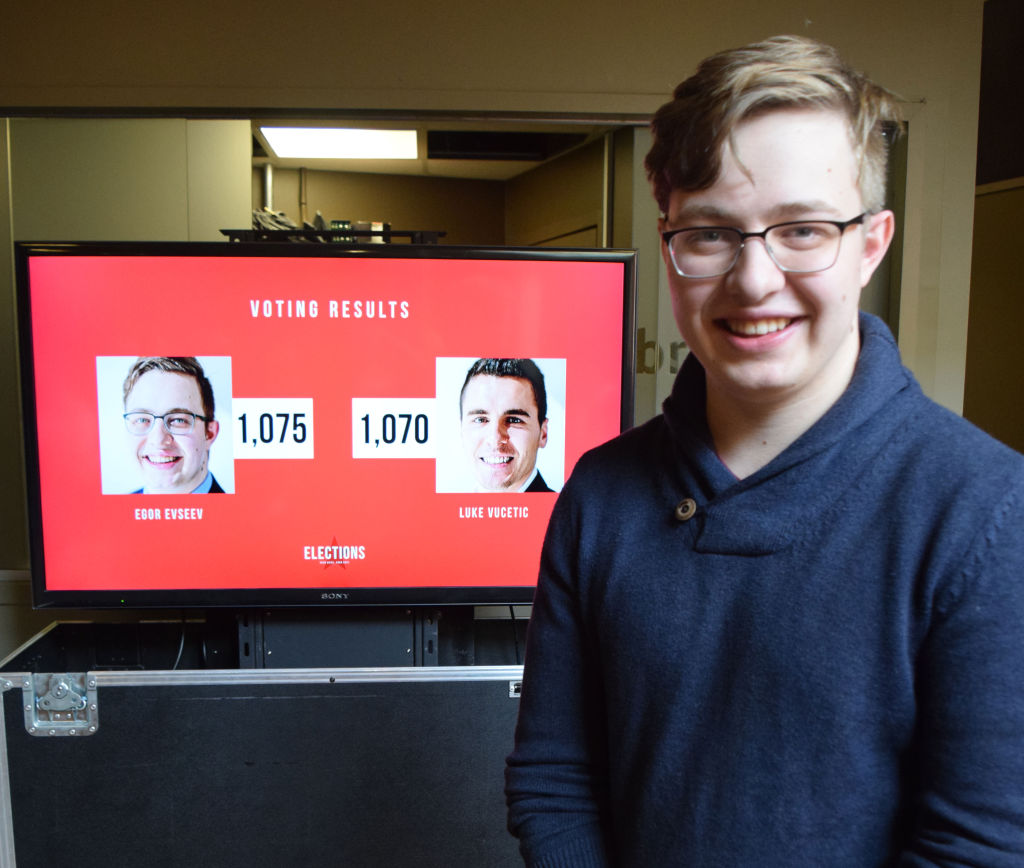
Proving that every vote counts, Egor Evseev beat his rival Luke Vucetic by just five votes out of a total of 2,145 casts to win the presidential post on April 1.
Evseev gathered 1,075 votes compared to Vucetic’s 1,070.
“Luke put up an amazing fight,” said Evseev, an advertising and marketing communication management student and a current member of the SA’s Board of Directors.
Prior to the result announcement, the odds were already in favor of Evseev, who has attempted to run for the election last year, but lost to Sara Grainger.
“I think anyone who was previously a director and runs again has an advantage,” said Sara Grainger, SA’s current president, in a previous interview with the Times.
Grainger’s term will conclude at the end of April, and Evseev will take over her office on May 1.
While Evseev walked around the Observatory receiving congratulations and cheering from people, Vucetic sat quietly with his loyal supporters, taking encouragement from friends.
“It was a tough race,” said Vucetic. “I couldn’t believe it was that close.
“I think we’re both going to work well on the board. I’m excited for the year ahead.”
While he will finish his last semester of management and entrepreneurship this April, Vucetic said he’s coming back next year for another program and will certainly run again for SA presidency.
To Charlene Dygos, the newly-elected SA vice president, what is even more exciting than knowing who she’ll be working with next year is the number of people who voted this year.
“Last year we only had a little bit over a thousand student votes, and this year we doubled that number,” said Dygos. “It’s a huge thing for the SA. We had a media presence out there showing (to Algonquin students) that you do have a say.”
This year’s election saw a fierce media battle between two candidates, with their posters featuring their names and agendas appearing in every corner of the school.
Although 2,000 votes is a success to the SA, it only accounts for 10 per cent of the college student population. Many students such as first-year architecture technician Kyle Villon didn’t vote because of studying pressure.
“I had too much work at the time of the election, so I decided to concentrate on studying instead of voting,” said Villon.


